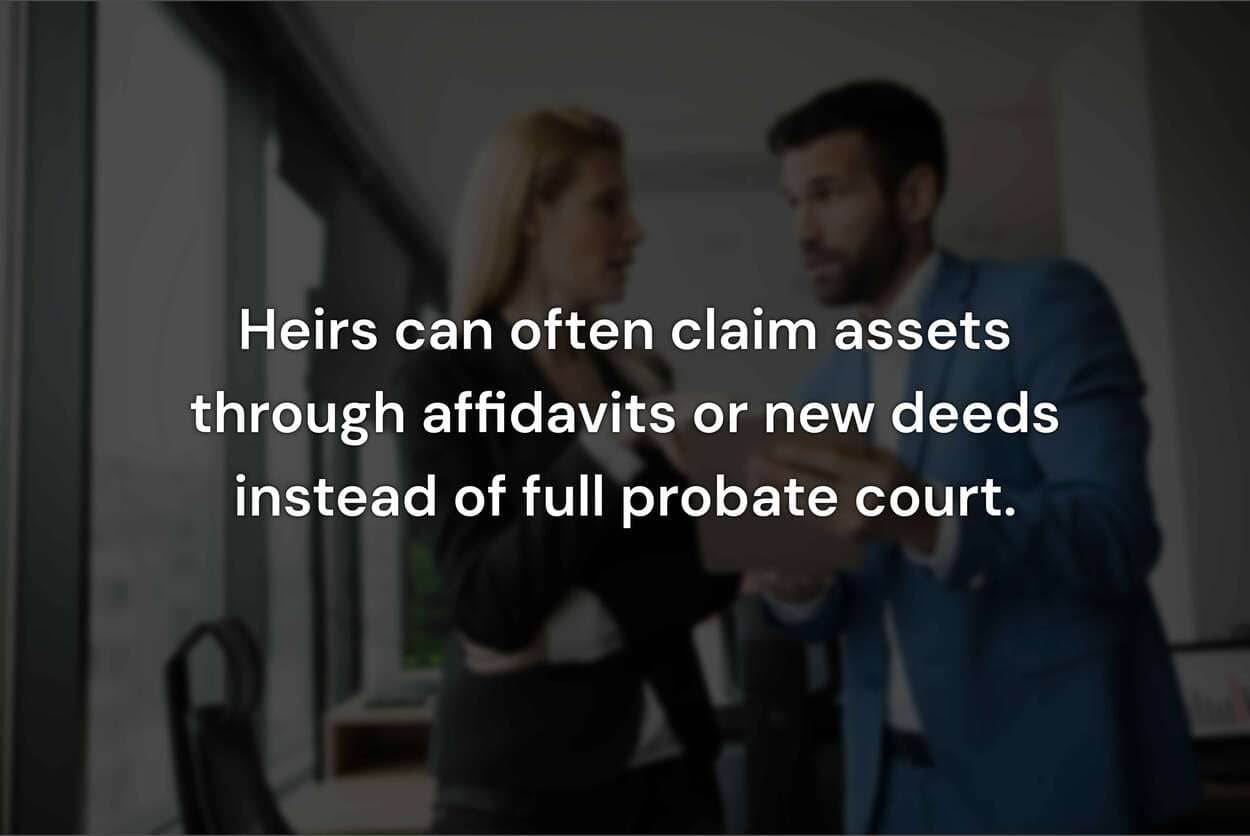When a person dies, their will usually directs how assets are distributed. But what happens when the will is never submitted to probate? Knowing how to vest interests, or legally transfer ownership of property, ensures that heirs receive what they’re entitled to and prevents long-term title complications.
What Does “Vesting Interests” Mean?
Vesting interests means transferring ownership of property or assets to the rightful heirs or beneficiaries. In legal terms, it gives someone the full right to possess and control what was owned by the deceased. Normally, probate handles this process through court supervision. When probate doesn’t occur, heirs must take separate legal steps to prove ownership.

Why a Will Might Not Be Probated
There are several reasons a will may never go through probate. Sometimes families assume it isn’t necessary, or they choose to avoid the process entirely.
Common reasons include:
- The estate is small and meets state exemptions for simplified procedures
- The family wants to avoid court fees and delays
- The executor is unaware probate is required
- There is disagreement about the will’s validity
- Most assets were held in joint ownership or a trust, so probate wasn’t needed for those items
Even when probate isn’t required, legal documentation is still necessary to transfer ownership correctly.
How to Vest Interests Without Probate
If a will exists but hasn’t been probated, heirs may still be able to transfer ownership using state-recognized procedures.

File an Affidavit of Heirship
An affidavit of heirship identifies the deceased, lists known heirs, and states their relationship to the decedent. It is signed by disinterested witnesses and recorded with the county. This is most often used for real estate. Once recorded, the document allows the title to pass to heirs without going through probate.
Use a Small Estate Affidavit
If the estate’s value is below a certain amount, heirs can file a small estate affidavit to claim personal property such as bank accounts, vehicles, or unpaid wages. Each state sets its own threshold. In California, this process can often be used if the estate is valued under $184,500. It allows heirs to collect assets directly without court involvement.
Record a New Deed
For real estate, heirs may be able to file a new deed once ownership is verified. This typically requires a certified death certificate and any relevant affidavits. Once approved, the county will recognize the new ownership, effectively vesting the interest in the heir’s name.
Seek a Court Order
If ownership disputes arise, heirs may petition the court for an official order confirming who is entitled to the property. Once granted, the court order can be recorded in the property records to finalize ownership.
Risks of Skipping Probate
Avoiding probate doesn’t always save time or money. It can cause major problems later, especially if real estate or complex assets are involved.

Common issues include:
- Property titles remaining in the deceased’s name
- Heir disputes over who owns what
- Tax errors or unpaid obligations
- Delays in future sales or refinancing because ownership isn’t clear
If property isn’t properly vested, it can stay legally tied to the deceased for years, creating challenges for heirs and lenders.
How Long Do You Have to Act?
Most states have time limits for probating a will or filing alternative affidavits. In California, probate petitions are typically expected to be filed within one year of death. Failing to act within that window can limit your ability to claim property or challenge other heirs.
Why Legal Guidance Is Essential
Even simple estates can become complicated if probate is skipped. The right attorney can determine whether an affidavit or court order is the proper path and ensure all documentation is accurate. Without professional guidance, families risk making title or tax mistakes that take years to correct.
If you need help transferring property ownership or determining whether probate is required, speak with an experienced probate attorney in Los Angeles, CA. They can review your case, prepare the correct filings, and make sure the process follows California law.



























